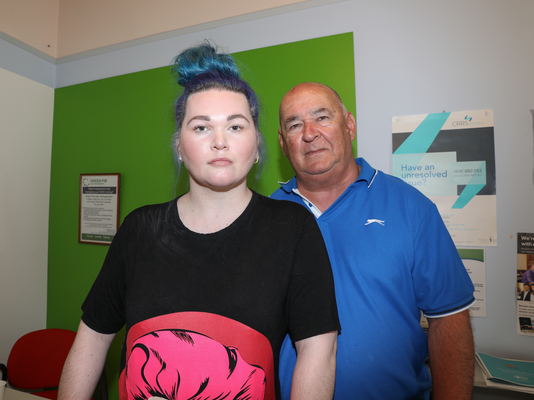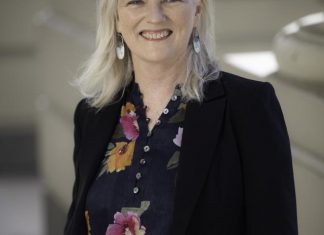
By Luke Voogt
Teesdale crash victim Krystle McGrane is the face of Epworth Geelong’s campaign for free MRI after having emergency scans for lifesaving surgery at the hospital.
Krystle backed the campaign, after the Indy last year revealed the hospital’s scanner was not covered under Medicare.
“I think it’s a great idea,” she said.
Krystle, who spoke to the Indy about her battle for a disability pension last week, had scans before and after surgery on 1 March 2018.
She was in two car accidents in 2014 and 2017, which left her with severe spinal injuries and unable to work.
“I’ll never forget that smell in my life, (of) burning rubber and metal,” she said.
“I have so many nightmares. I ball up, cry in my sleep.”
Epworth Geelong pain specialist Michael Vagg diagnosed her with complex regional pain syndrome, which rates higher than childbirth and amputation on the McGill Pain Index.
Krystle aggravated her injuries last February after attempting to pet her puppy.
“I felt like I’d been shot in the back. I screamed so loud,” Krystle said.
She got an ambulance to Epworth where Dr Vagg said her condition “seriously threatened” her leg, bowel and bladder function.
“I knew this was a potentially disastrous situation that needed rapid action,” he said in an Epworth video.
Dr Vagg ordered urgent MRI scans for Krystle, who had surgery within two hours.
If TAC had not paid for the scans, Krystle would have owed more than $1800, on a Newstart Allowance of just $275 per week.
“Moving me (to a scanner covered by Medicare) could have been disastrous and the wait could have left me paralysed, incontinent and possibly dead,” she said.
TAC payed Ms McGrane loss of earnings benefits from 2014 but ceased them in 2017 because she had “less than 50 per cent disability”.
Centrelink began paying her Newstart allowance in January 2018 but refused to pay her disability pension despite her “48 per cent disability“, she said.
Krystle lives with parents, Neil, 68, and Margot, 67, and sometimes uses a walking frame due to her condition.
“My dad’s got Parkinson’s disease and my mum’s got diabetes and chronic arthritis,” she said.
“Sometimes I wonder if it’s worthwhile to be in pain for a week to afford vegetables.”
TAC paid for some medications and medical appointments but the authority had refused to pay for others, Krystle said.
At times she had been in tears over the phone begging for TAC to cover ketamine infusions before the commission agreed, she said.
TAC was working to resolve the issue as soon as possible and apologised for any stress it may have caused, a spokesperson said.







